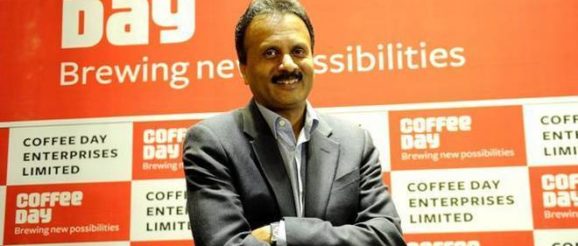Lessons from CCD Founder Siddhartha’s Tragic Story – CPO INNOVATION

Every entrepreneur’s journey is like a wild roller coaster ride on an untested machine with no brakes. Clearly not for the faint-hearted. The odds of success are stacked against you as only 1 out of 10 startups succeed. While stories of Flipkart, OYO, Ola and Facebook dominate the press no one talks about the failures. An entrepreneur risks his capital, toils a 15 hour day, neglects his family and devotes the best years of his life to his company. Entrepreneurs who drive the SME sector are the real growth engines of the economy. The SME sector is the second biggest employer after agriculture. In fact the only sector capable of employing the 12 million young jobseekers who enter the job market every year.
Here lies the problem. It takes more than 100 clearances to build a 500 MW power plant or a hotel chain and any one agency can stop the project. Complex tax returns and ever-changing GST regulations add to the cost. Tax litigation typically takes 5 to 10 years to resolve. Compliance often takes 50% of an entrepreneur’s time when it should only take 5%. And God helps an entrepreneur whose business fails. Businesses can fail for many legitimate reasons in a changing environment. Instead of building a climate that encourages startups to take risks and try out innovative ideas, Tax and bank officials descend on the hapless entrepreneur of a failed unit for recovery often treating him like a criminal who has not paid his dues. Sure there are crooks in business who have diverted loans into personal accounts and they should be prosecuted and brought to justice but the Mallyas, Bhushans, Dhoots and Nirav Modis are the exception and not the rule. And most of the petty corruption in business is because of over-regulation – because approvals come at a price. And until the recent reforms kicked in even loans came at a price which the business was forced to bear.
Add to this mix an archaic Factory’s Act 1948 which weighs 1 kilo and is packed with unnecessary regulations. This maze of over-regulation does not help the consumer, the entrepreneur, the government or the workforce – it only paves the way for the inspector to celebrate a Happy Diwali at the expense of the nation.
It is not difficult to understand why the brightest talent and the best ideas relocate to Singapore and Dubai. Governments in South East Asia are now offering a range of mentorships, seed funding, fast regulatory clearances, and a proactive approach to solving problems. Singapore has a tax rate that is half of India, superb infrastructure, zero corruption and a regulatory system in which it is easy to enforce contracts. 1 in 7 startups in South East Asia are started by Indians. If this flight of talent and capital is to be reversed the starting point is a national-level recognition of entrepreneurship and business at large and the role it plays in nation-building, employment generation and poverty reduction.
National awards like the Padma Shri recognize sportsmen, doctors, actors, politicians, social workers but rarely entrepreneurs who are the unsung heroes of the nation. A recalibration in the mindset of the entrenched bureaucracy from a “regulatory” to a “promotional” approach is a first step. Unless they start seeing entrepreneurs and the business community as nation builders who bring prosperity and jobs, India will not be able to make the kind of progress our East Asian neighbors have made in the last few decades. The nation needs more entrepreneurs and fewer bureaucrats, more factories and less factory inspectors, and a simplification of the archaic regulatory framework.
Founder, Partners 4 Growth
Consults to family-managed companies, helping them manage succession & internal conflict through “Clear the air” family retreats. He has conducted knowledge sessions for more than 1000 CEOs in partnership with leading banks across 10 cities. He is also a speaker at Family Business Forums.
